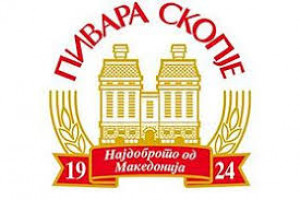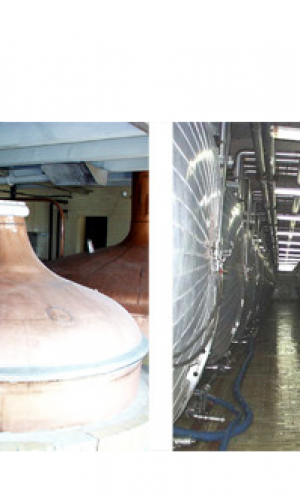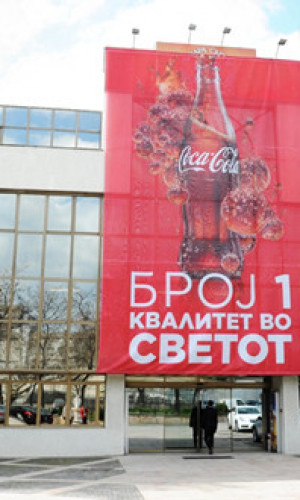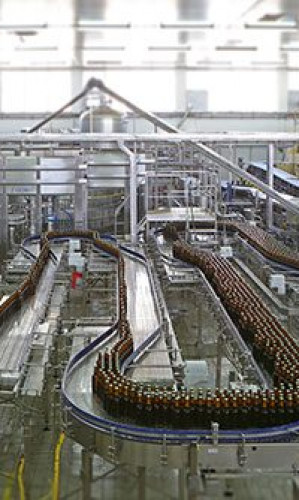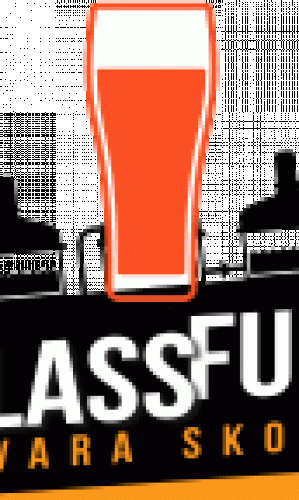Firm Info
In the aftermath of the First World War and especially in the first post-war years, foreign capital started finding its way to the Balkan, while the most common form thereof was establishment of Joint Stock Companies with dominant foreign equity. Skopje’s Steam Brewery was established mostly due to the fact that there were no breweries south of Jagodina. In the same period, the Brewery in Nis was opened, but smaller in size and capacity compared to the one in Skopje. In 1922, a land of 32,347 m2 area was purchased in the vicinity of the railway line Skopje–Nis, two kilometres east of Skopje and marked the start of the factory’s construction. The Steam Brewery in Skopje was established the same year and registered as industrial enterprise. It was founded by two Czechs: engineer Victor Zeiss and banker Karel Husnik. They invested three million dinars, and doubled the investment one year later, while in 1924 it amounted to nine million dinars. In the pre-war period, the Brewery’s annual production capacity was 35,000 hectolitres beer, 720 tons beer malt and 1,500 tons ice.
The war did not result in any losses for the company. On the contrary, production was on the rise in this period and the company achieved greater profits. This was mainly due to the army’s presence and its consumption of beer. The Brewery worked in full production capacity. Record-breaking 33,931,30 hectolitres beer were produced and sold in 1942. High beer consumption triggered new recruitments for the Brewery’s administrative and qualified labour staff.
After the liberation, the Brewery entered a new era, which fully corresponded to political and economic transformations in the society. This marked the beginning of company’s plans to expand and modernize its facilities. The first post-war year was marked by a production of 20,428 hectolitres beer, which was by 12% less than the highest registered production output in the pre-war period. In 1951, the Brewery was reconstructed and introduced new technology. This investment increased the production capacities to 50,000 hectolitres. In 1958, 1963, 1969, 1974 and 1985, the production process was upgraded and expanded and led to the establishment of its current production capacity of 1,100,000 hectolitres per year.
Until 1977, Pivara Skopje produced only beer and malt. That year announced the start of production of several soft beverages. In 1982, the production portfolio included vinegar, and five years later – dry beer yeast and dry beer malt. In 1985, the production process was upgraded and expanded and led to the establishment of its current production capacity of 1,100,000 hectolitres per year. In 1989, the privatization process of Pivara Skopje was initiated, by transferring equity rights in the sections distribution and transport trucks. The second stage implied privatization of Brewery’s distribution centres. In 1995, this complex process was successfully completed. In 1991, Pivara Skopje launched production of soft beverages from the Coca-Cola Company in the capacity of chartered bottling company. Given the high demand for soft beverages, the company introduced its production line for plastic bottles (PET) as early as 1995. With that, Pivara Skopje’s overall production capacity for soft beverages reached 948,000 hectolitres per year.
19 May 2003 will be remembered in the company’s history as the date when new ultramodern production plants for beer, soft beverages and water were put into operation. With this investment worth 55 million USD, Pivara Skopje increased its production of SKOPSKO and Gorsko (beer brands) and soft beverages from the Coca-Cola portfolio by additional 100 million liters.
In 2011, the first innovative Water Biological Treatment Plant in Macedonia was commissioned, an investment worth almost 3 million EUR, invested by the Company. The Bio Treatment Plant contributes to preserving the eco-system, and at the same time to ensure effective water and energy savings.
In 2009 and 2013 The Coca-Cola Company has ranked Pivara Skopje as the first in the world in terms of Beverage Product Quality Index (BPQI) for the beverages it produces.
Investment of 1.4 million EUR in purchasing new bottling equipment which opened a new chapter in Pivara Skopje’s development and which has increased the production capacities to 1 million bottles in just one day.
In the past decade and up until today Pivara Skopje constantly upgrade its actions in every each segment maintaining the highest level of quality on its brands.
We are celebrating, in Pivara Skopje quarter century of highest appreciations from Monde Selection for the quality of SKOPSKO, highest appreciations for best index of quality for Coca-Cola, innovation portfolio enhancement with new brands, flavors and package.
We still remain committed to preserve the highest positions of our brands on the domestic market.
94 years old and we have just started.

